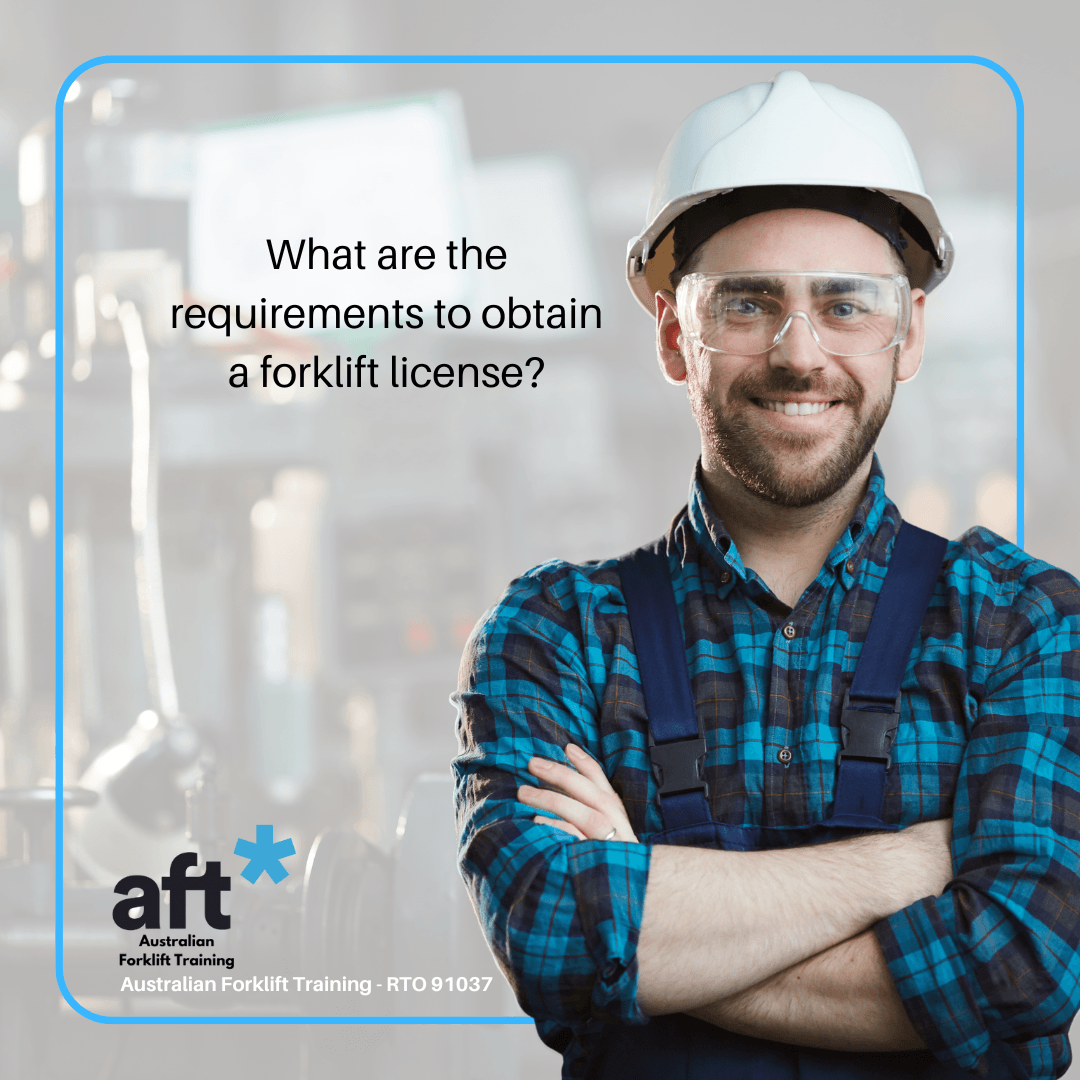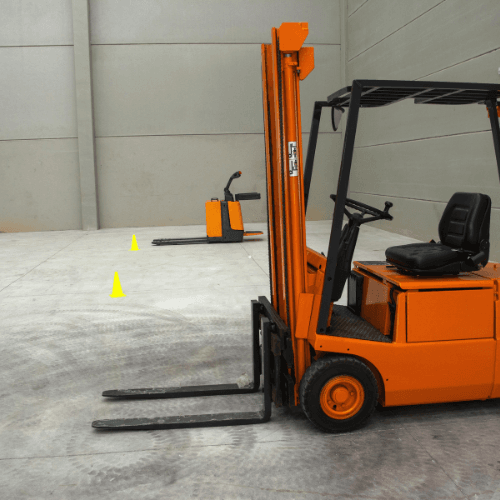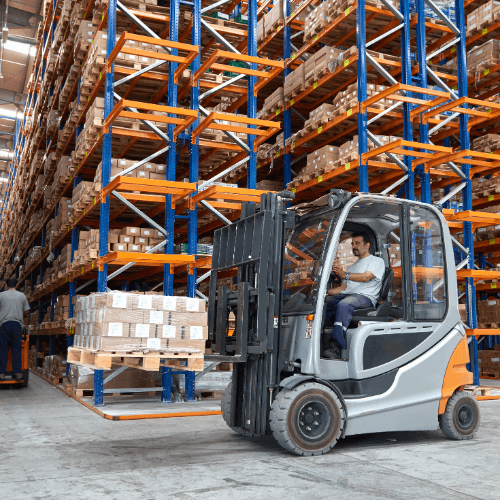
Forklift Licence Sydney: Complete Guide to Getting Your Certification in 2025
Forklift Licence Sydney: Complete Guide to Getting Your Certification in 2025
Looking for a forklift licence Sydney? Operating a forklift in Sydney requires more than just knowing how to drive one. With New South Wales experiencing significant growth in warehousing, logistics, and industrial sectors, the demand for qualified forklift operators continues to rise. However, before you can operate a forklift truck in any commercial setting, you must obtain a high risk work licence through SafeWork NSW. Obtaining a forklift license is a quick and accessible certification, with many fast-paced and convenient training programs in Sydney designed to help individuals and businesses achieve certification efficiently.
This comprehensive guide covers everything you need to know about getting your forklift licence in Sydney, from initial requirements to ongoing compliance. Whether you’re starting a new career or need certification for your current role, understanding the process will help you secure your forklift ticket efficiently and cost-effectively.
We deliver training for the nationally recognised units:
TLILIC0003– Licence to operate a forklift truck
TLILIC0004– Licence to operate an order picking forklift truck
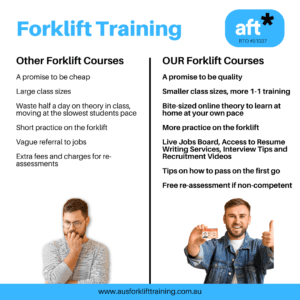
Introduction to Forklift Training
Forklift training is the foundation for anyone looking to operate a forklift truck safely and effectively in the workplace. In Australia, obtaining a forklift licence is a legal requirement, and the best way to achieve this is through a registered training organisation (RTO) that offers comprehensive forklift training courses. These courses are designed to equip students with both the theoretical knowledge and practical skills needed to operate a forklift truck with confidence. Training covers essential topics such as workplace safety, equipment handling, and operational techniques, ensuring that students are fully prepared for the demands of forklift operation. By completing a recognised forklift training program, individuals not only meet legal requirements but also enhance their employability and open doors to new career opportunities in industries where forklift operation is a key skill. Whether you are new to the workforce or looking to upskill, obtaining your forklift licence through a reputable RTO is a smart investment in your future.
How to Get Your Forklift Licence in Sydney
The process of obtaining a forklift licence in Sydney involves several mandatory steps that ensure you’re properly trained and competent to operate these powerful machines safely in workplace environments. The aim of the forklift licence Sydney process is to help students achieve their career goals, improve their skills, and meet important compliance requirements.
Age and Basic Requirements
To be eligible for forklift training in Sydney, you must be at least 18 years old by the time you complete your assessment. This age requirement is strictly enforced under NSW legislation, as forklift operation is classified as high risk work requiring mature judgment and responsibility.
You’ll also need to demonstrate basic English literacy and numeracy skills sufficient for safe operation and effective workplace communication. This includes the ability to read safety instructions, understand load capacity calculations, and communicate clearly with supervisors and team members.
Identification Requirements
Before enrolling in any forklift licence course, you must establish a myservicensw account, which requires two forms of proof of identity. One form must be photo id, such as a driver licence, passport, or NSW Photo Card. The identification process follows a 100-point system to verify your identity securely.
Additionally, you’ll need to obtain a Unique Student Identifier (USI), which is mandatory for all vocational education and training in Australia. This identifier tracks your training records and ensures your certification is properly recorded in the national system. Make sure your contact details, including your phone number, are up to date so you can receive important information about your licence and training.
Training with Approved Providers
All forklift training must be completed through a SafeWork NSW approved registered training organisation. These RTOs are located throughout Sydney, including popular locations like Blacktown and Moorebank, making it convenient to find a training centre near your location.
The training combines comprehensive theory covering safety procedures, hazard identification, load capacity calculations, and workplace regulations with extensive hands on practical training. During practical sessions, you’ll learn pre-operational checks, maneuvering techniques, lifting procedures, and emergency protocols under the guidance of experienced trainers. These trainers create a supportive and helpful environment, offering clear guidance and encouragement to help you become confident in your forklift skills. Trainers are always available to provide helpful support and answer any questions throughout the training process, ensuring every student feels comfortable and well-prepared.
Assessment Process
Your competency will be evaluated by a SafeWork NSW accredited assessor under realistic workplace conditions. The assessment includes both theory knowledge testing and practical demonstration of your skills operating different types of forklift equipment.
During the practical assessment, you’ll need to demonstrate safe pre-start checks, proper maneuvering of loaded and unloaded equipment, accurate placement and retrieval of loads, and appropriate parking procedures. The assessor will evaluate your safety awareness, technical competency, and adherence to workplace procedures throughout the process. Obtaining a forklift licence Sydney is fast and cost effective.
Application Submission
Upon successful completion of your assessment, you’ll receive a Notice of Satisfactory Assessment (NSA). This document must be used to apply for your official licence within 60 days through Service NSW or SafeWork NSW channels. The application requires payment of the prescribed fee and submission of all required documentation. You can pay the application fee online, and some providers may offer flexible payment options or payment plans to make the process more convenient.
Processing times vary, but you can typically expect to receive your physical licence card within a few weeks of submitting your application. Many employers will accept the NSA as proof of competency while waiting for the official licence to arrive.
Book your forklift training at our Blacktown or Moorebank centre
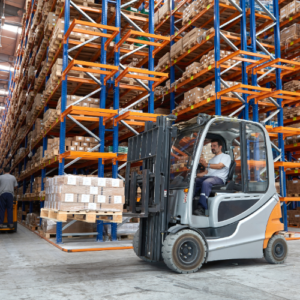
Types of Forklift Licences Available in Sydney
Understanding the different licence classes available ensures you obtain the correct certification for your intended workplace duties and career goals. Employers also have a duty of care to ensure workers receive appropriate training and certification for the specific forklift duties they are assigned.
Standard Forklift Truck Licence (LF)
The TLILIC0003 certification, commonly known as the LF licence class, authorizes you to operate standard forklifts with a mast and elevating load carriage. This includes counterbalance forklifts, side-loading forklifts, rough terrain forklifts, and truck-mounted forklifts.
With an LF licence, there are no restrictions on forklift size or capacity, provided you operate within manufacturer specifications and workplace safety guidelines. This makes it the most versatile certification for workers seeking employment across various industries.
Order Picker Forklift Licence (LO)
The TLILIC0004 certification covers order picker forklifts where the operator controls elevate with the load carriage. These machines are commonly used in warehouses with high racking systems where workers need to access items at various heights.
Operating an order picker forklift requires different skills compared to standard forklifts, as you’ll be working at height and need to maintain stability while the platform moves vertically. The LO licence is essential for workers in distribution centres and large retail warehouses.
High Reach Forklift Operations
While technically covered under the LF licence class, high reach forklifts require specialized training due to their extended reach capabilities and use in warehouse operations with tall racking systems. These machines demand advanced maneuvering skills and height management techniques.
Many training providers include high reach forklift instruction as part of their standard LF courses, particularly when training is conducted at facilities that simulate realistic warehouse environments.
Combination Training Options
Recognizing that many employers require workers who can operate multiple types of equipment, numerous RTOs offer combo courses that provide certification for both LF and LO licence classes. This approach is often more cost-effective than completing separate courses and provides greater employment flexibility.
Students completing combo courses typically receive comprehensive training covering all equipment types, ensuring they develop the full range of skills needed for diverse workplace requirements.
How much do forklift drivers get paid in NSW? Complete 2025 Salary Guide
Importance of Certification
Certification is a critical step for anyone wishing to operate a forklift truck in Australia. Holding a forklift licence demonstrates that you have successfully completed a forklift licence course, passed the assessment process, and possess the necessary skills and knowledge to operate a forklift truck safely. The licence class you obtain determines the types of forklifts you are authorised to operate, making it important to select a course that matches your career goals and workplace requirements.
Certification is issued by Service NSW after you complete the required training and assessment, providing official recognition of your competency. Employers across NSW and Australia look for certified operators to ensure workplace safety and compliance with regulations. By obtaining your forklift licence, you not only meet legal obligations but also show your commitment to safety and professionalism, making you a valuable asset to any employer.
Forklift Training Providers in Sydney
Sydney offers numerous options for completing your forklift training, with providers strategically located across the metropolitan area to serve workers from all regions. Sydney’s training centres are a good place to learn, offering a welcoming environment, experienced instructors, and a supportive atmosphere for all students.
Major Training Locations
Popular training centres operate in Moorebank and Blacktown, and other key locations throughout Sydney. These facilities feature fully equipped training areas with various forklift types, realistic warehouse setups, and proper safety equipment.
Many providers offer flexible scheduling with courses available seven days a week, including evening and weekend options to accommodate different work schedules. This flexibility ensures that obtaining your certification doesn’t interfere with your current employment or personal commitments.
Training Delivery Options
Most RTOs provide both standard classroom-based training and onsite workplace training by arrangement. Onsite training can be particularly beneficial for businesses training multiple employees, as it allows instruction using the specific equipment and workplace conditions where the skills will be applied.
Individual students can typically choose between attending established training centres with purpose-built facilities or arranging group sessions with colleagues or friends. The choice often depends on scheduling preferences, budget considerations, and the specific licence class required.
Course Duration and Intensity
Standard forklift licence courses typically require one to two days for completion, depending on the licence class and your prior experience. New operators generally complete the full program, while experienced workers with demonstrated competency may qualify for accelerated one-day courses.
The training schedule usually includes morning theory sessions followed by afternoon practical training and assessment. This intensive format allows most students to complete their certification and receive their NSA within a single week of starting the process.
Role of a Registered Training Organisation
A registered training organisation (RTO) is essential in delivering high-quality forklift training and certification. RTOs, such as Absolute Forklift Training, are accredited to provide nationally recognised forklift licence courses that combine in-depth theoretical instruction with hands on practical training. Experienced trainers guide students through every aspect of forklift operation, from basic controls to advanced safety procedures, ensuring that each participant develops the skills and knowledge required for safe and efficient forklift operation.
Practical training sessions allow students to operate a forklift truck in a controlled environment, building confidence and competency under expert supervision. In addition to initial training, RTOs also offer verification of competency (VOC) assessments, which help confirm that operators continue to meet industry standards. Choosing an RTO for your forklift training ensures you receive comprehensive guidance, practical experience, and the certification needed to succeed in the workplace.
What are the requirements to obtain a forklift license?
Forklift Licence Costs in Sydney 2025
Understanding the financial investment required for forklift certification helps you budget appropriately and compare options among different training providers.
Standard Course Pricing
Current pricing for forklift training in Sydney ranges from $295 to $595 for standard LF or LO courses, including both training and assessment fees. This represents competitive pricing compared to other major Australian cities and reflects the high-quality instruction provided by accredited RTOs.
Combo courses covering both LF and LO licence classes typically cost between $600 and $695, offering significant savings compared to completing separate courses. The price difference makes combo training an attractive option for workers seeking maximum employment flexibility.
Additional Costs and Considerations
The course fees generally include all training materials, use of equipment during instruction, and the assessment conducted by accredited assessors. However, students should budget for the SafeWork NSW licence application fee of approximately $81-$85, which is payable separately when submitting your application.
Personal protective equipment, including steel-capped boots and high-visibility vests, is typically required during training. Some providers include PPE in their course fees, while others require students to bring their own suitable safety gear.
Payment Options and Discounts
Many training providers offer flexible payment options to make certification more accessible. These may include Afterpay, Humm, or Zip interest-free payment plans that allow you to spread the cost over several months.
Group bookings often qualify for discounted rates, making it cost-effective for employers to train multiple workers simultaneously. Some providers also offer price-matching guarantees, ensuring you receive competitive pricing for your certification.
Assessment and Certification Process
The assessment process is designed to ensure you possess both the knowledge and practical skills necessary for safe forklift operation in real workplace environments.
When undertaking high risk work activities, such as operating forklifts, it is essential to have the proper licensing and follow all required safety procedures.
Theory Assessment Components
The theory component covers essential knowledge including workplace safety regulations, hazard identification and risk management, equipment limitations and capabilities, load capacity calculations, and emergency procedures. You’ll need to demonstrate understanding of the Work Health and Safety Regulation 2017 as it applies to forklift operation.
The theory assessment also includes practical calculations related to load capacity, center of gravity, and stability triangle concepts. These mathematical concepts are crucial for safe operation and preventing tip-over accidents that can result in serious injury or equipment damage.
Practical Demonstration Requirements
During the practical assessment, you’ll demonstrate competency in pre-operational safety checks, including inspection of hydraulic systems, steering mechanisms, brakes, and warning devices. The assessor will observe your technique and ensure you identify potential safety issues before operation.
You’ll also need to show proficiency in maneuvering both loaded and unloaded forklifts through various scenarios, including narrow aisles, ramps, and around obstacles. Load handling skills, including proper pickup, transport, and placement techniques, form a critical part of the practical evaluation.
Assessment Standards and Expectations
Assessors evaluate your performance against national competency standards, ensuring consistency across all training providers. The assessment occurs under realistic workplace conditions, often including noise, other vehicle movement, and typical warehouse environmental factors.
To pass the assessment, you must demonstrate consistent safe practices throughout all activities. Minor errors may be correctable through additional instruction, but serious safety violations typically require repeat assessment after further training.
Safe Operation of a Forklift Truck
Safe operation of a forklift truck is vital for preventing workplace accidents and ensuring a secure environment for all employees. Effective forklift operation relies on a combination of thorough training, practical skills, and a strong understanding of relevant legislation and compliance requirements.
Operators must be knowledgeable about load capacities, maneuvering techniques, and safe shutdown procedures, as well as the specific risks associated with their workplace. Regular assessment and ongoing training help maintain high standards of competency and confidence, enabling operators to handle their duties responsibly. By adhering to established safety protocols and staying up to date with current legislation, forklift operators play a key role in maintaining a safe and productive workplace.
Licence Validity and Renewal
Understanding the ongoing requirements for maintaining your forklift licence ensures you remain compliant with NSW regulations throughout your career.
Initial Licence Validity Period
High risk work licences in NSW, including forklift certifications, remain valid for five years from the date of issue. This extended validity period recognizes that properly trained operators retain their core competency over time with regular practice and workplace experience.
Your licence card serves as official photographic identification for employment purposes and must be presented to supervisors before beginning forklift operation in any new workplace. Employers are legally required to sight valid licences before permitting workers to operate equipment.
Renewal Process and Requirements
SafeWork NSW sends renewal reminders approximately 60 days before your licence expires, typically via email or mail to your registered address. The renewal process can be completed online through your myservicensw account and usually takes just five to ten minutes when your details are current.
Licence renewal doesn’t require reassessment of your skills, provided you renew before expiry or within 12 months of expiry. This streamlined process recognizes that operators maintain competency through regular workplace use of their skills.
Maintaining Ongoing Competency
While formal reassessment isn’t required for renewal, maintaining current skills through regular operation and ongoing workplace safety training is essential. Many employers conduct periodic verification of competency assessments to ensure workers continue meeting safety standards.
Staying updated with industry safety practices, equipment developments, and regulatory changes helps ensure your knowledge remains current throughout your career. This ongoing professional development often leads to career advancement opportunities and increased workplace responsibility.
Work Requirements and Compliance
Understanding your legal obligations as a licensed forklift operator ensures you maintain compliance with NSW workplace safety legislation while protecting yourself and your colleagues. It is crucial to protect a person from workplace hazards when operating or working near forklifts, in accordance with safety regulations.
Licence Presentation Requirements
Before beginning forklift operation at any workplace, you must present your current licence to your supervisor or manager. This requirement applies regardless of how long you’ve worked for the employer or your previous experience with the company.
The licence presentation requirement helps employers verify that all operators possess current certification and appropriate licence classes for the specific equipment being used. Failure to comply with this requirement can result in significant penalties for both workers and employers.
Supervision and Training Requirements
Newly licensed operators typically require direct supervision until they demonstrate competency in the specific workplace environment. The level and duration of supervision depends on workplace complexity, equipment types, and individual operator confidence and skill development.
Employers must provide adequate training on workplace-specific procedures, equipment variations, and local safety protocols. This training complements your formal certification and ensures you understand unique hazards and procedures in your particular work environment.
Compliance with Safety Regulations
All forklift operation must comply with the Work Health and Safety Regulation 2017, which establishes mandatory safety standards for high risk work activities. This includes following manufacturer specifications, conducting pre-operational checks, and using appropriate personal protective equipment.
Operators share responsibility with employers for maintaining safe workplace practices. This includes reporting safety hazards, following established procedures, and refusing to operate equipment that appears unsafe or is outside your licence class authorization.
Additional Services and Support
Beyond basic certification, various support services help ensure ongoing compliance and skill development throughout your career.
Verification of Competency Services
Many employers utilize verification of competency assessments to document worker skills for compliance purposes. These assessments don’t replace your licence but provide additional evidence of current competency for workplace records.
VOC assessments typically cost between $199 and $249 and can be completed more quickly than full certification courses. They’re particularly useful for experienced operators changing employers or working in high-risk environments requiring additional documentation.
Corporate Training Solutions
Large employers often arrange group training programs to ensure consistent skill levels across their workforce. These programs can include initial certification, refresher training, and specialized instruction for specific equipment types or workplace environments.
Corporate training packages typically offer cost savings for multiple participants and can be customized to address specific workplace requirements or safety concerns. Many providers offer onsite delivery to minimize workplace disruption and ensure training relevance. Why travel all over Sydney? We’ll bring the forklift licence Sydney to you!
Interstate Licence Recognition
Workers relocating to NSW from other Australian states can transfer their existing forklift licences to the NSW system. This process maintains certification continuity while ensuring compliance with local regulatory requirements.
The transfer process typically requires proof of current interstate licensing, identity verification, and payment of applicable fees. Processing times are usually shorter than new applications, recognizing existing competency and training.
Forklift Licence Sydney: Ongoing Support Resources
SafeWork NSW maintains comprehensive resources for licence holders, including regulatory updates, safety alerts, and guidance materials. The dedicated helpline (13 10 50) provides assistance with licensing questions, renewal procedures, and compliance requirements.
Many training providers also offer ongoing support to their graduates, including refresher training opportunities, equipment updates, and career development advice. This continuing relationship helps ensure long-term success in forklift operation careers.
Understanding and obtaining your forklift licence in Sydney opens doors to numerous employment opportunities across the growing logistics, warehousing, and industrial sectors. The investment in proper training and certification pays dividends through improved job security, career advancement potential, and the confidence that comes from comprehensive safety knowledge.
With current pricing remaining competitive and flexible training options available throughout Sydney, there’s never been a better time to pursue your forklift certification. Contact a registered training organisation near you today to begin the process of securing your future in this essential industry.
Conclusion: Final Tips for Getting Your Forklift Licence Sydney
When pursuing your forklift licence Sydney, it’s important to select a reputable registered training organisation that offers comprehensive forklift training courses tailored to your needs. Look for courses that provide a balance of theoretical instruction and hands on practical training, ensuring you are well-prepared for both the assessment and real-world forklift operation. Make sure the course covers the specific licence class required for your intended job and that the training provider is approved by Service NSW.
Completing a forklift licence course not only helps you obtain your licence but also equips you with the practical skills and knowledge needed to operate a forklift truck safely and efficiently in any workplace. Always prioritise safety, follow relevant legislation, and continue to update your skills to maintain compliance and protect yourself and your colleagues on the job. With the right training and commitment, you can confidently advance your career in the growing field of forklift operation across NSW. Forklift Licence Sydney is well worth it.

